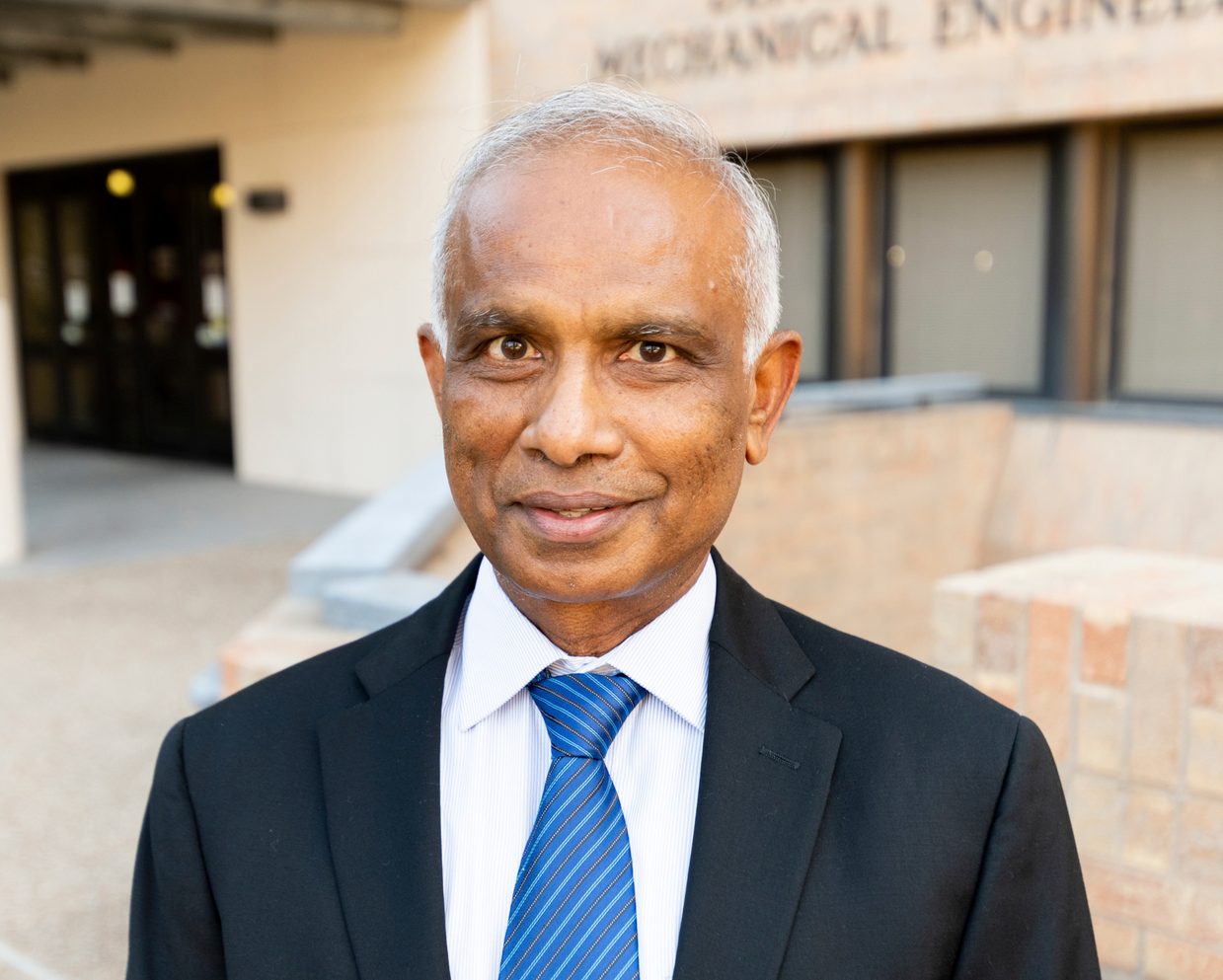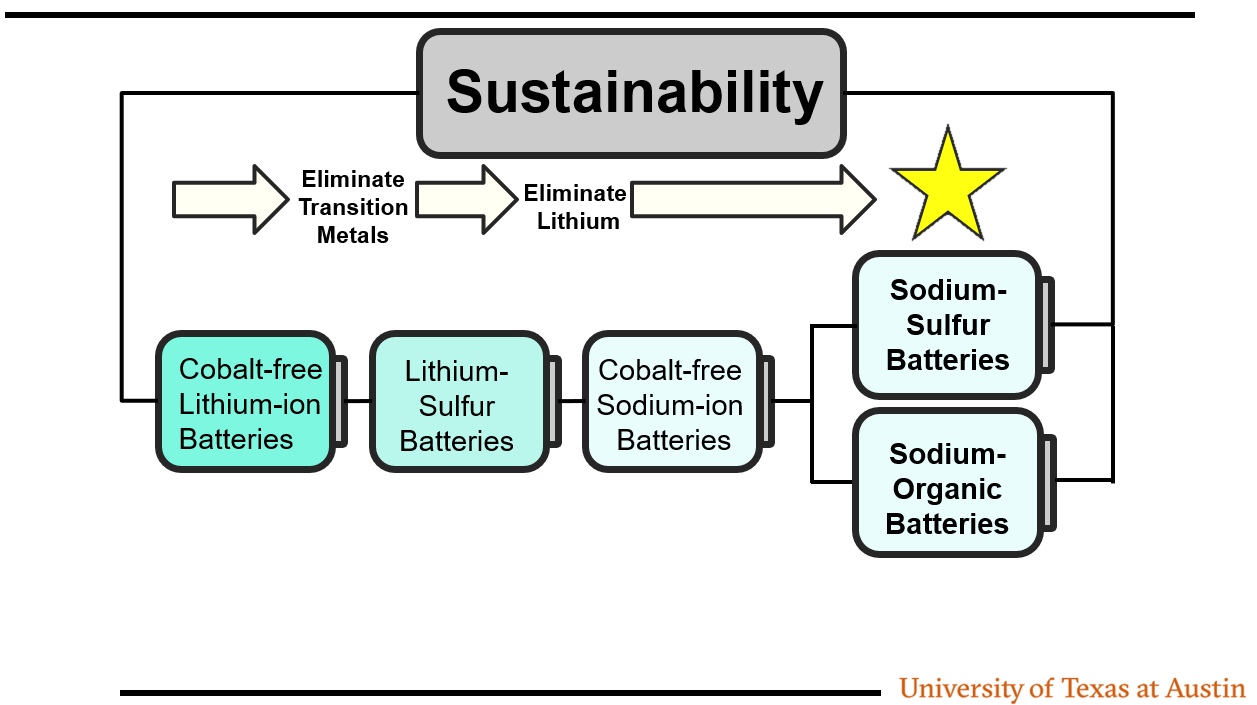Arumugam Manthiram
George T. and Gladys H. Abell Endowed Chair of Engineering
The University of Texas at Austin
Date: September 20, 2023
Time: 1000–1100h ET
Sponsors: EL-Cell, BioLogic, TA Instruments – Waters, WITec
The widespread adoption of battery technologies for electric vehicles and grid electricity storage requires optimization of cost, energy density, power density, cycle life, safety, and environmental impact, all of which are directly linked to severe materials challenges. Cost and sustainability will be the single dominant factor as we march forward. This presentation focuses on the development of sustainable next-generation battery chemistries and materials. Strategies and approaches for eliminating expensive and scarcely available cobalt, followed by eliminating nickel and ultimately any mined metal, including lithium, are discussed. As an example, the progress on cobalt-free high-nickel cathodes, lithium-sulfur cells, and sodium-sulfur cells is presented. The challenges of bulk and surface instability and chemical crossover during charge-discharge cycling, dynamics and stabilization of lithium or sodium plating and striping, advanced characterization methodologies to develop an in-depth understanding, and approaches to overcome challenges are presented.
An interactive Q&A session follows the presentation.
Benefits of attending the webinar
Learn about:
- Next-generation battery materials development;
- Complex chemical and electrochemical dynamics involved during charge-discharge cycling;
- Power of advanced characterization methodologies to delineate the intricacies involved.
Arumugam Manthiram
Arumugam Manthiram is the George T. and Gladys H. Abell Endowed Chair of Engineering at the University of Texas at Austin (UT-Austin). From 2011-2022, he was the Director of the Texas Materials Institute at UT-Austin. After receiving his PhD in Chemistry from the Indian Institute of Technology Madras in 1981 and working as a postdoctoral researcher at the University of Oxford and at UT-Austin, in 1991 he joined the UT-Austin Department of Mechanical Engineering faculty. Professor Manthiram’s research focuses on batteries and fuel cells. He has authored more than 900 journal articles with 102,000 citations and an h-index of 158. He has mentored ~ 300 students and postdoctoral researchers, including the graduation of 69 PhD students.
Dr. Manthiram is a Fellow of The Electrochemical Society, Materials Research Society, American Ceramic Society, Royal Society of Chemistry, American Association for the Advancement of Science, and World Academy of Materials and Manufacturing Engineering. He is an elected member of the World Academy of Ceramics. He received the 2023 ECS John Goodenough Award, 2021 ECS Battery Division Technology Award, 2020 ECS Henry B. Linford Award for Distinguished Teaching, 2020 International Battery Association Research Award, 2016 Billy and Claude R. Hocott Distinguished Centennial Engineering Research Award, 2015 Distinguished Alumnus Award of the Indian Institute of Technology Madras, 2014 ECS Battery Division Research Award, and 2012 university-wide (one per year) Outstanding Graduate Teaching Award. Dr. Manthiram has been a Web of Science Highly Cited Researcher every year since 2017. He delivered the 2019 Chemistry Nobel Prize Lecture in Stockholm on behalf of the late Professor John Goodenough.
Learn more about upcoming ECS Webinars and review our previous webinar recordings.
We thank our webinar sponsors who make these complimentary programs possible.
 |
 |
|
 |
 |
Interested in presenting in the ECS Webinar Series? Email your presentation title and abstract to education@electrochem.org for consideration.



